
Kolding: The Danish Gem of History and Nature
Kolding, nestled in the heart of Denmark, is a city where history meets nature. With its rich cultural heritage and breathtaking landscapes, Kolding offers a unique experience for every traveler. The city is home to the iconic Koldinghus, a medieval castle that stands as a testament to Denmark's storied past. Wander through its halls and gardens, and you'll feel like you've stepped back in time. Beyond its historical landmarks, Kolding is a haven for nature lovers. The city is surrounded by lush forests and serene lakes, perfect for hiking, biking, or a peaceful picnic. Don't miss Geographical Garden, a botanical garden that showcases plants from around the world. It's a perfect spot to relax and enjoy the natural beauty of the region. Kolding is also a vibrant hub for art and design. Visit the Trapholt Museum, where contemporary art and design take center stage. The museum's stunning architecture and diverse exhibitions will leave you inspired. And for a taste of local culture, explore the city's charming streets filled with boutiques, cafes, and restaurants offering delicious Danish cuisine.
Local tips in Kolding
- Visit Koldinghus early in the morning to avoid crowds and enjoy the castle in peace.
- Rent a bike to explore the city's beautiful nature trails and parks.
- Check out local markets for fresh produce and Danish specialties.
- Take a stroll along the Kolding Fjord for stunning water views.
- Visit the Trapholt Museum on Wednesdays when admission is free.
Kolding: The Danish Gem of History and Nature
Kolding, nestled in the heart of Denmark, is a city where history meets nature. With its rich cultural heritage and breathtaking landscapes, Kolding offers a unique experience for every traveler. The city is home to the iconic Koldinghus, a medieval castle that stands as a testament to Denmark's storied past. Wander through its halls and gardens, and you'll feel like you've stepped back in time. Beyond its historical landmarks, Kolding is a haven for nature lovers. The city is surrounded by lush forests and serene lakes, perfect for hiking, biking, or a peaceful picnic. Don't miss Geographical Garden, a botanical garden that showcases plants from around the world. It's a perfect spot to relax and enjoy the natural beauty of the region. Kolding is also a vibrant hub for art and design. Visit the Trapholt Museum, where contemporary art and design take center stage. The museum's stunning architecture and diverse exhibitions will leave you inspired. And for a taste of local culture, explore the city's charming streets filled with boutiques, cafes, and restaurants offering delicious Danish cuisine.
When is the best time to go to Kolding?
Iconic landmarks you can’t miss
Saint Nicolas Church
Kolding’s oldest church, where medieval roots, Renaissance artistry, and daily parish life meet under a red-brick neo‑Gothic tower.
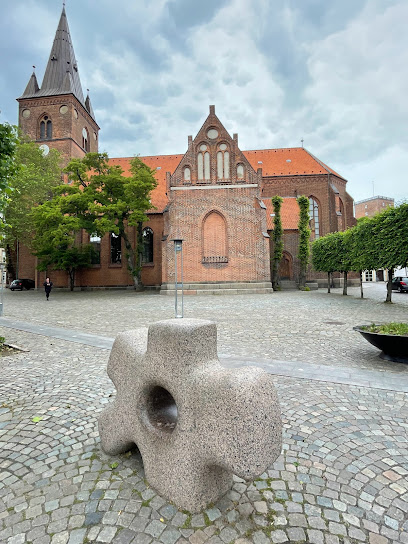
Kolding St.
The compact rail and bus hub that delivers you straight into Kolding’s mix of castle-topped history, cobbled streets and fjord-side modern design.
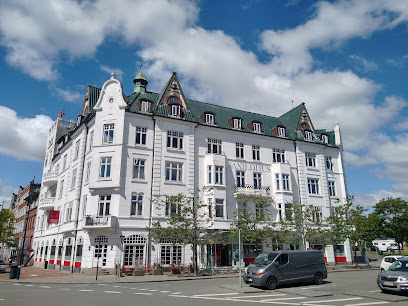
Helligkorsgade 18
Denmark's rarest medieval townhouse, where 437 years of history meet contemporary art.
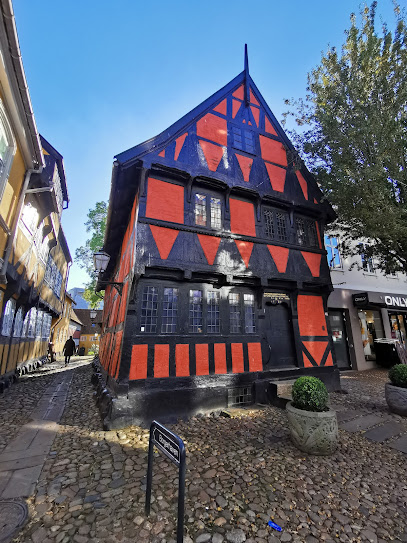
Saint Michaels Church
A modest 19th-century Catholic red-brick church in central Kolding, offering quiet reflection, intimate architecture and a glimpse of Denmark’s Catholic life.
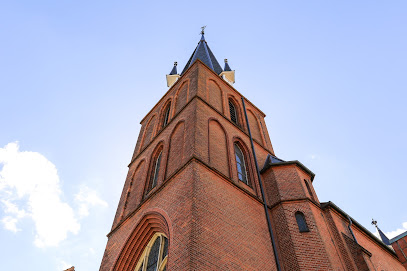
Stallerup Sø
A historic lake and scenic cycling hub where renewable energy heritage meets Danish countryside tranquility.
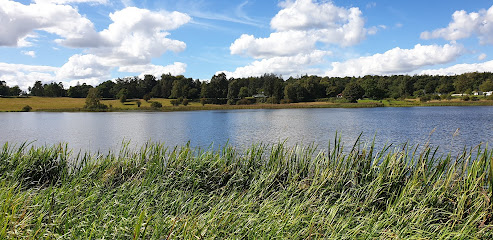
The Passage
Kolding's historic covered arcade where local shops, cafés, and the lively English Pub create an authentic downtown gathering space.
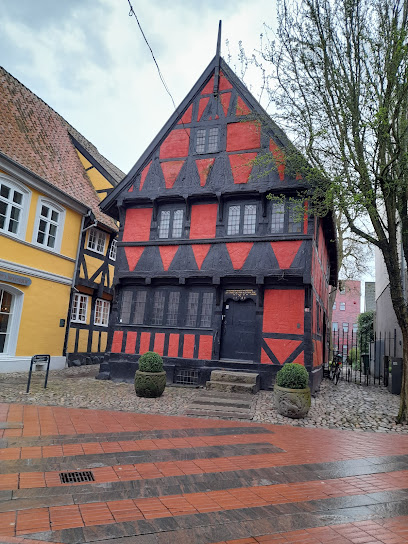
Borchs Gård
A vividly painted Renaissance townhouse from 1595, Borchs Gård brings Kolding’s mercantile past to life on the edge of lively Akseltorv square.
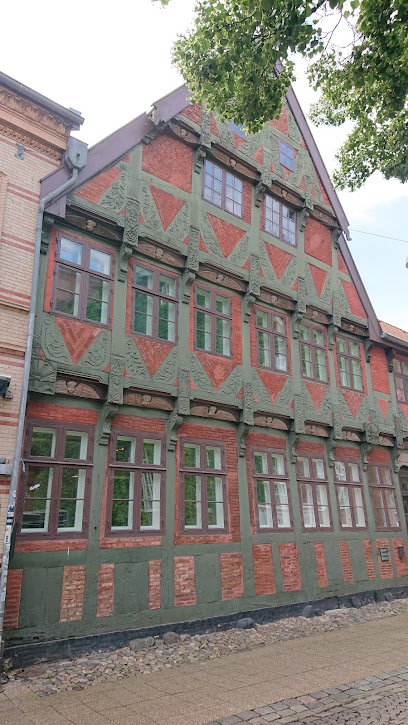
Unmissable attractions to see
LEGOLAND® Billund Resort
The original LEGO theme park where Miniland models, family coasters and colourful brick worlds turn a day in Billund into a playful Danish adventure.
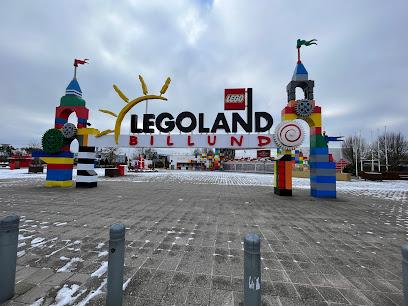
Koldinghus
A 750‑year‑old royal fortress reborn as an award‑winning museum, where raw brick ruins, modern timber and sweeping tower views tell the story of Denmark in one castle.
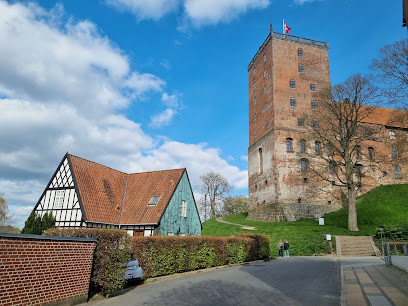
Legeparken
Large, free play park in central Kolding with lake, boats, mooncars and grills – an easygoing green playground for children of all ages and their adults.
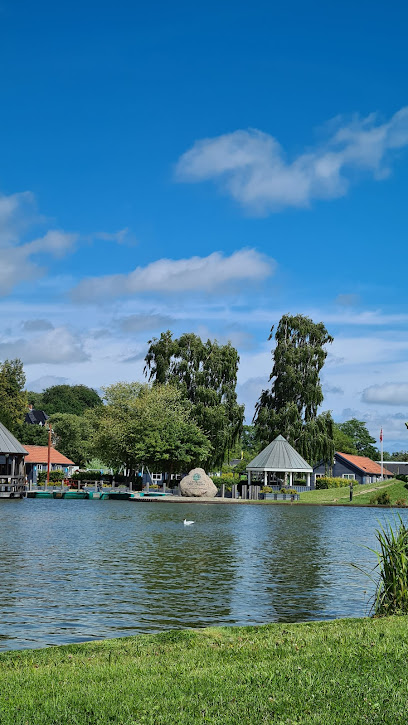
Trapholt Museum for Modern Art and Design
Architect‑designed hillside museum above Kolding Fjord, where modern art, experimental craft and iconic Danish design meet sculpture park strolls and a unique Arne Jacobsen house.
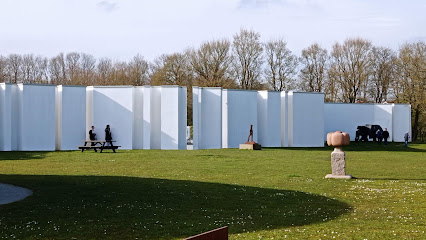
Hotel Koldingfjord
Historic fjordside hotel in a former sanatorium, blending Danish design, woodland trails and water views with refined dining and standout conference facilities.
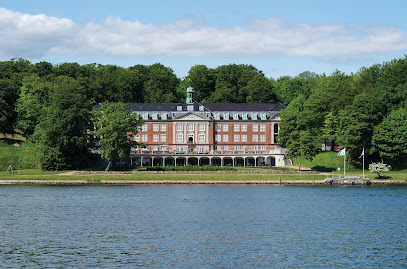
Geografisk Have
Botanical world map, miniature historic Kolding and gentle animal encounters combine in this spacious garden-park, Kolding’s signature green escape for all ages.
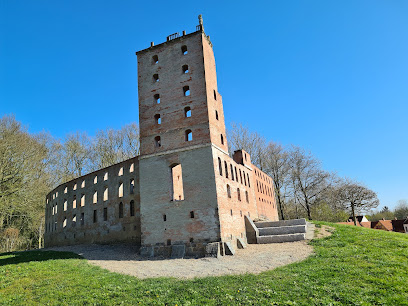
Fonden Harteværket
A historic hydropower plant turned playful experience centre, where Kolding’s industrial past meets hands-on water experiments and tranquil river landscapes.
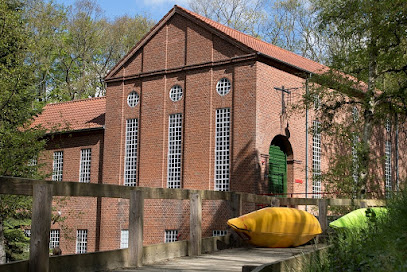
Marielundskoven
A 1850s forest sanctuary in Kolding's heart, where lakeside walks and woodland trails reveal nature's seasonal beauty.
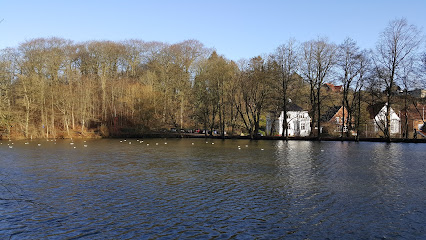
Danish Museum of Nursing History
A poignant journey through Danish nursing history, set in a former children’s tuberculosis sanatorium with tranquil views over Kolding Fjord.
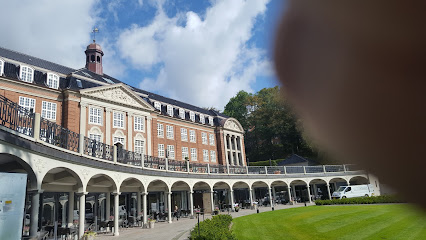
Skamlingsbanken | Museum Kolding
A hillside museum woven into South Jutland’s highest point, where glacial landscapes, powerful speeches and panoramic views over the Little Belt meet.
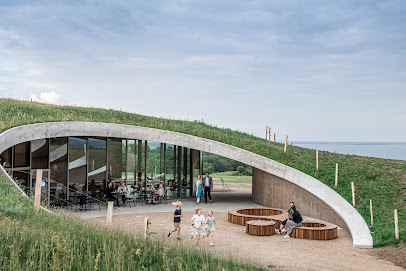
Landbomuseet Kolding
Step into a historic Danish farmstead where tractors, tools, animals and farmhouse interiors bring the story of rural life near Kolding vividly to life.
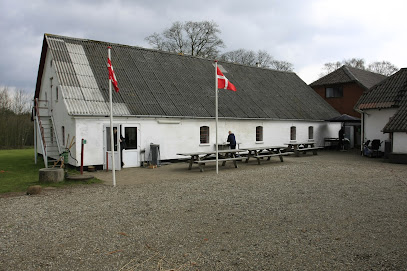
Gomonkey - Kolding
Forest high-ropes adventure in Kolding’s Hylkedal valley, with multi-level treetop courses, long ziplines and outdoor fun for families, friends and groups.
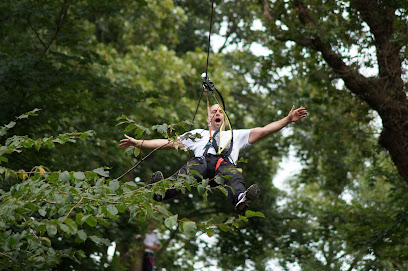
The Spanish stairs
A broad, tile-clad staircase with Lin Utzon’s art, the Spanish Stairs link Kolding’s old streets to its castle hill in a gently Mediterranean-feeling urban pause.
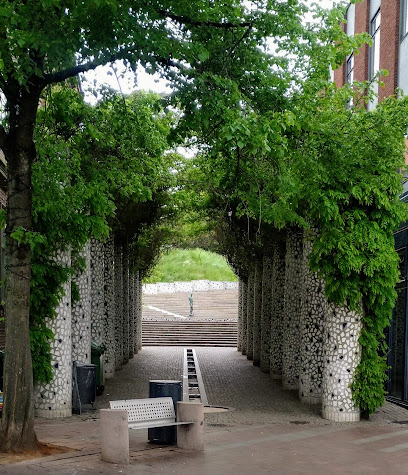
St George's Garden
A modest neighbourhood park in Kolding, St George’s Garden offers simple lawns, trees and local life – a quiet pause between the town’s grander green spaces.
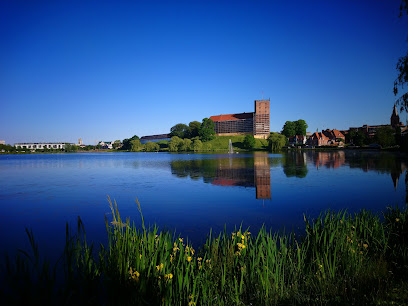
Castle Garden
A tranquil belt of lawns, trees and lake reflections wrapped around Koldinghus, where everyday life and 750 years of castle history share the same green hillside.
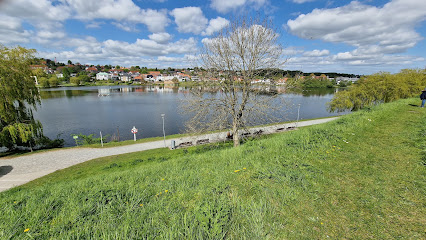
Essential places to dine
Restaurant Flammen
All-you-can-eat grill, generous buffets and a relaxed, family-friendly atmosphere on Kolding’s Haderslevvej, perfect for long, social dinners and celebrations.
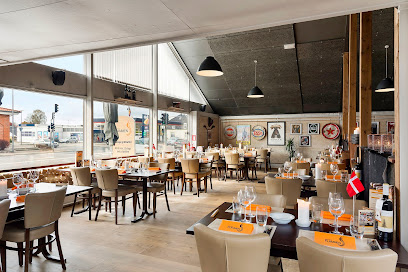
Bone's Kolding
Bustling American-style BBQ joint in central Kolding, serving big plates, salad bar and soft-ice in a memorabilia-filled setting made for easygoing family meals.
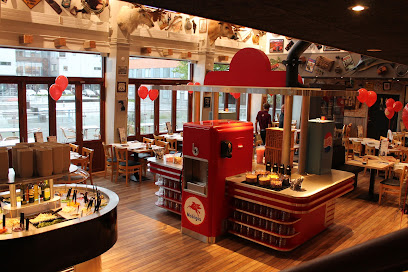
Jensens Bøfhus Kolding
Casual Danish steakhouse inside Kolding Storcenter, serving family‑friendly steaks, burgers, ribs and soft‑ice desserts from late morning to evening every day.
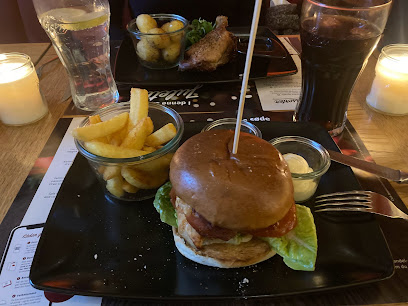
Cafe Marcello's
All‑day cafe‑restaurant in central Kolding serving generous brunches, burgers, pasta and steaks in a relaxed, sociable setting just off the river.
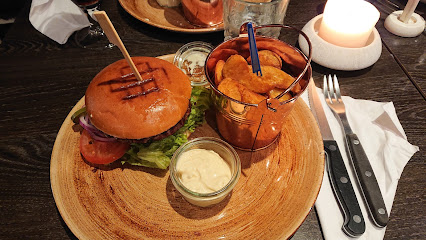
the mokka café
Modern Danish hygge in a hidden city passage, blending generous brunches, café classics and cocktails in a warm, all‑day living room in the heart of Kolding.
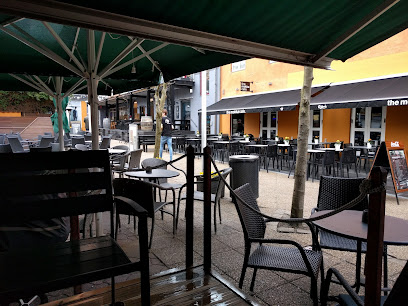
Bramdrupdam Kro og Hotel
Traditional Danish kro on Kolding’s edge, blending hearty classic cuisine, simple lodging and event spaces in a convenient spot between motorway, city and green trail.
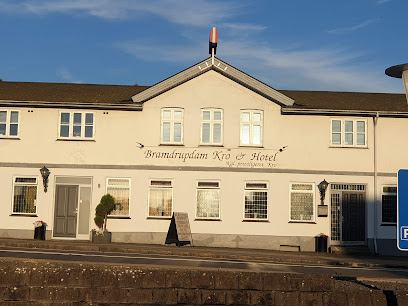
Atami Sushi Restaurant
All‑you‑can‑eat sushi with tablet ordering and robot service in the heart of Kolding’s Akseltorv, blending modern Japanese flavours with a casual Danish city vibe.
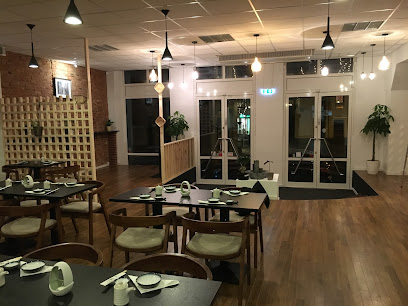
Bella Italia
Long‑running Italian trattoria in central Kolding, serving generous pizzas and classic pastas in a cozy, lived‑in atmosphere close to the city’s main streets.
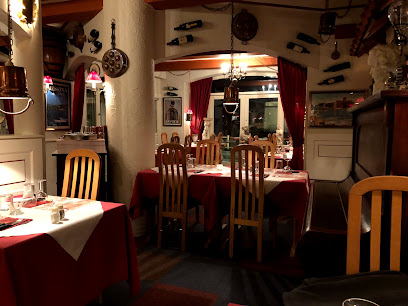
Madkælderen Koldinghus
Seasonal Danish cuisine and candlelit cellar ambience beneath the vaulted stone of Koldinghus, where modern gourmet dining meets centuries of royal castle history.
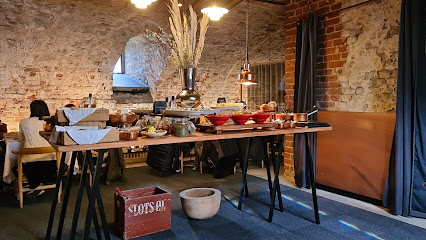
Restaurant Over Aaen
Casual Spanish‑inspired dining with brunch, tapas and steaks served on a heated year‑round terrace overlooking Kolding’s central stream and pedestrian street.
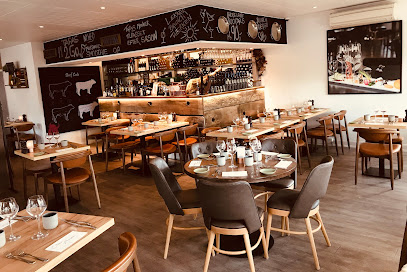
Rafaels Restaurant
Cosy Italian restaurant on Kolding’s historic Slotsgade, serving generous pizzas, pastas and classic dishes in a warm, lively setting ideal for dinners and celebrations.
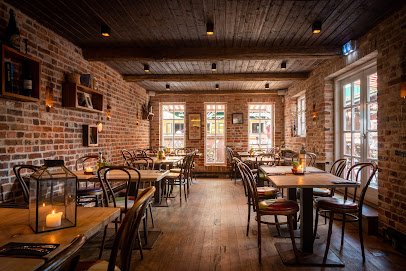
Ristorante Fratelli
Bustling Italian trattoria by Kolding Station, serving wood‑fired pizzas, hearty pasta and Italian wines in a warm, contemporary dining room ideal for evenings out.
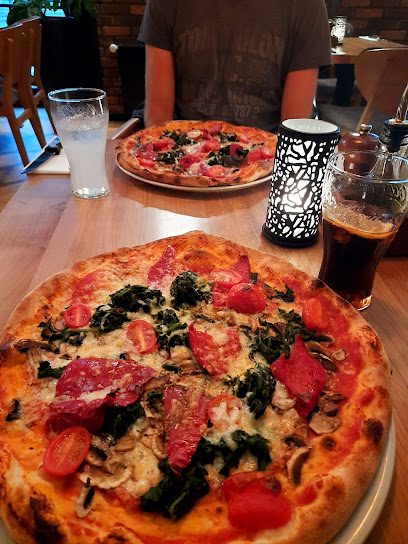
Marinaen
Relaxed Danish waterfront restaurant at Kolding’s yacht harbour, pairing fjord views with well‑cooked fish, steaks and cosy maritime interiors for long, lingering meals.
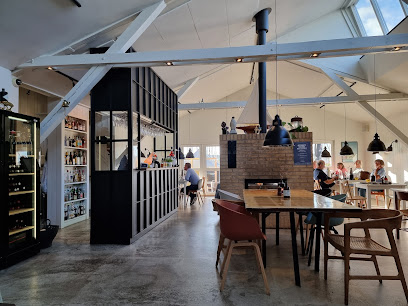
A Hereford Beefstouw - Kolding
Classic Danish steakhouse dining in Kolding’s second-oldest gabled house, where expertly grilled beef meets candlelit old-town atmosphere and a serious wine list.
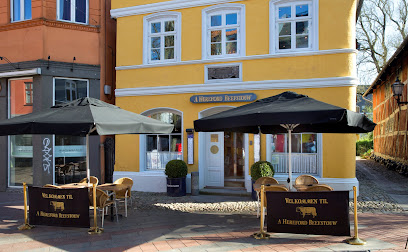
Den Blå Bistro
French-inspired bistro at the heart of Kolding, blending classic Gallic dishes, Danish ingredients and a cosy, candlelit atmosphere ideal for both lunch and long dinners.
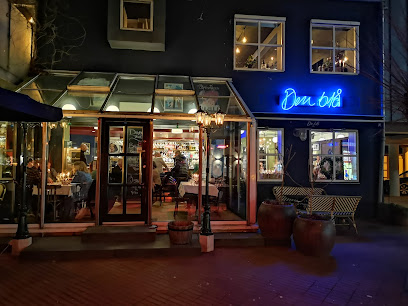
Markets, malls and hidden boutiques
Kolding Storcenter
Jutland’s largest shopping centre, blending big-name retail, dining and cinema with free parking, family-friendly design and year-round indoor comfort.
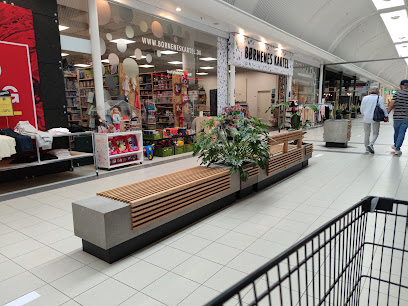
Kirppu
Big indoor flea supermarket in Kolding where locals rent stands and fill the aisles with ever-changing second-hand treasures, from vintage design to family cast-offs.
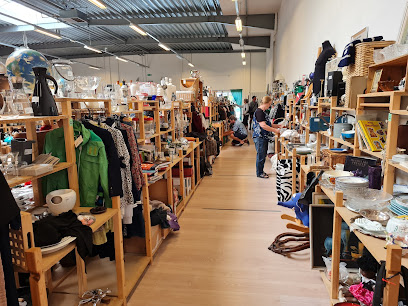
Flying Tiger Copenhagen
Compact, colourful and full of affordable surprises, Flying Tiger Copenhagen in Kolding is a playful stop for gifts, gadgets, crafts and Scandinavian‑styled everyday fun.
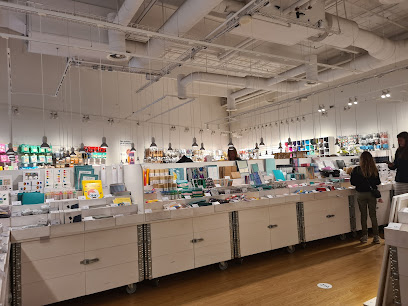
Telia Kolding
Denmark's leading telecom retailer offering mobile devices, repairs, and connectivity solutions in Jutland's largest shopping center.
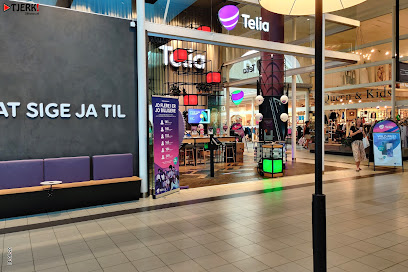
Sailor's Ink tattoo Kolding | Din tatovør i Kolding
Modern, art‑driven tattoo studio in central Kolding, blending award‑winning craftsmanship, strict hygiene and a relaxed living‑room vibe for first‑timers and collectors alike.
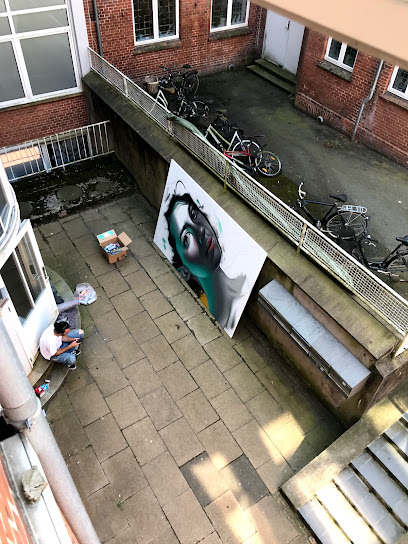
Sinnerup Kolding
Scandinavian design, contemporary living, and lifestyle inspiration under one expansive roof.
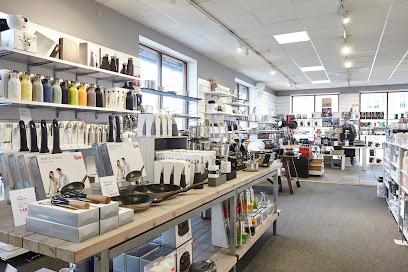
Bog & idé - Kolding Storcenter
Bright, modern book and gift shop inside Kolding Storcenter, mixing Danish reads, games and stationery with helpful service and long, convenient opening hours.
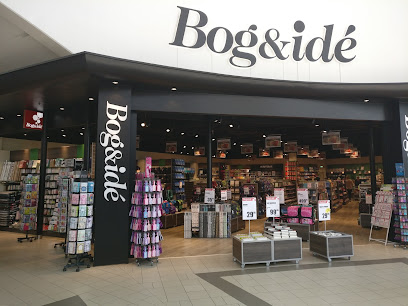
Plantorama Kolding
A modern 12,000 m² green universe in Kolding, blending garden center, pet shop, home décor and café with family‑friendly play zones and sustainable design.
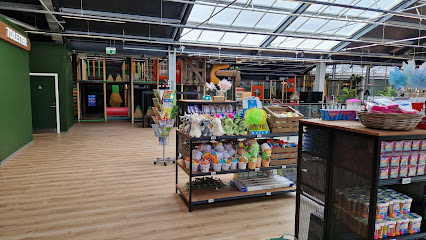
Michella´s Frugt og Grønt v/Mahmoud Aldherej
Compact, colourful greengrocer in central Kolding, perfect for fresh fruit, vegetables and picnic supplies between explorations of the city’s historic streets.
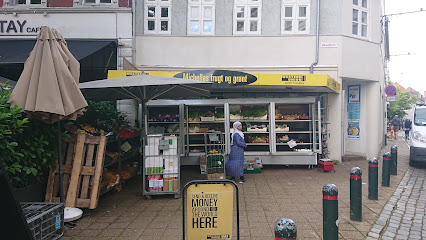
Kop & Kande Kolding C
Central Kolding’s cosy homeware and gift shop, where practical Danish kitchen design, glassware and tableware meet easy browsing on lively Helligkorsgade.
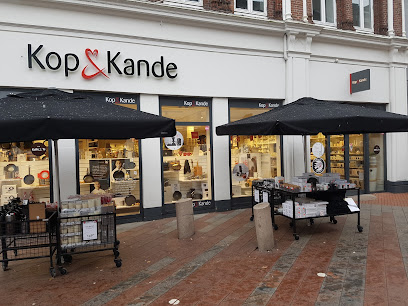
HARRESØ
An intimate Kolding concept store where Scandinavian minimalism meets international menswear, blending gallery-like interiors with a sharply curated selection of designer brands.
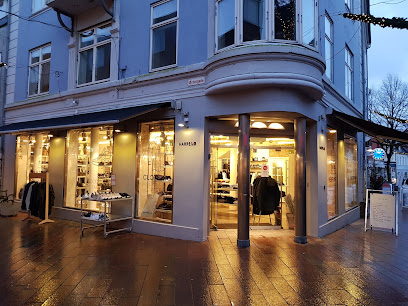
Bog & idé Kolding City
Central Kolding’s one-stop book and gift shop, combining Danish reads, games, stationery, hobby items and handy photo services in a bright, well-organised space.
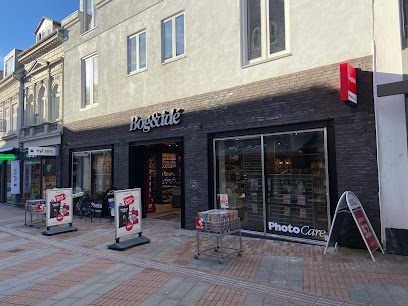
byHANSEN
A refined neighborhood florist in central Kolding, specializing in crafted bouquets, seasonal arrangements and thoughtful floral design for life’s big and small moments.
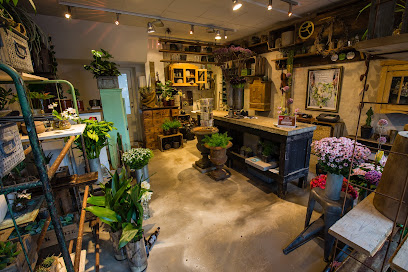
Kids Coolshop
A colourful Kolding toy universe where shelves of games, LEGO, gadgets and cuddly friends make choosing the next gift as fun as unwrapping it.
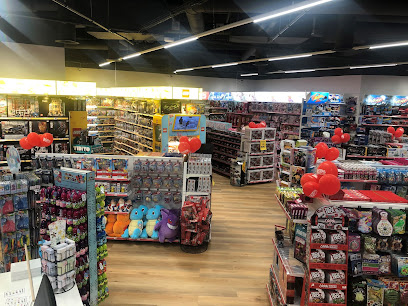
DNA Kolding
Stylish menswear and footwear in the heart of Kolding's downtown shopping district.
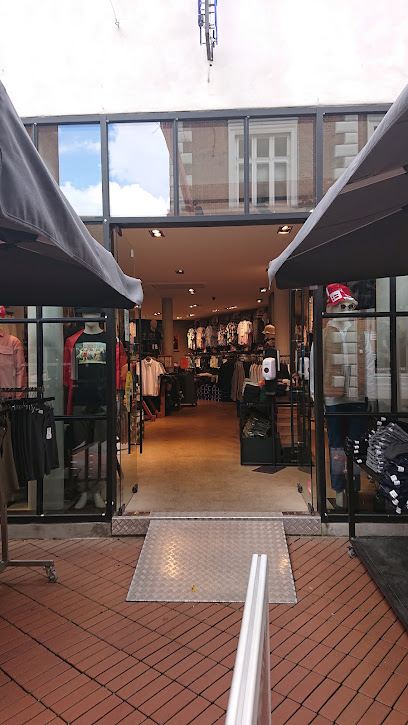
Essential bars & hidden hideouts
Den Engelske Pub - You'll Never Walk Alone
British pub tradition meets Danish warmth in Kolding's legendary beer and whisky destination.
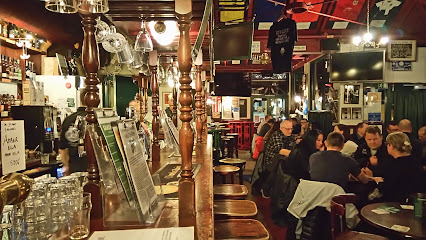
Knuds Garage
Garage‑themed neighborhood bar in central Kolding with affordable drinks, board games, foosball and a cozy courtyard that turns evenings into easygoing social nights.
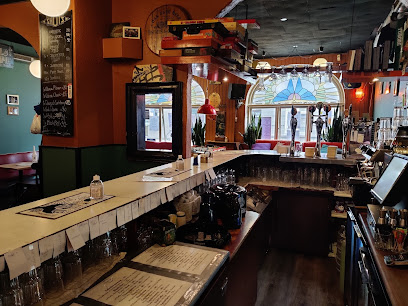
Vinbaren Kolding
Intimate wine and cocktail bar in Kolding’s A.L. Passagen, pairing hygge-filled atmosphere with well-chosen drinks and simple, shareable tapas-style bites.
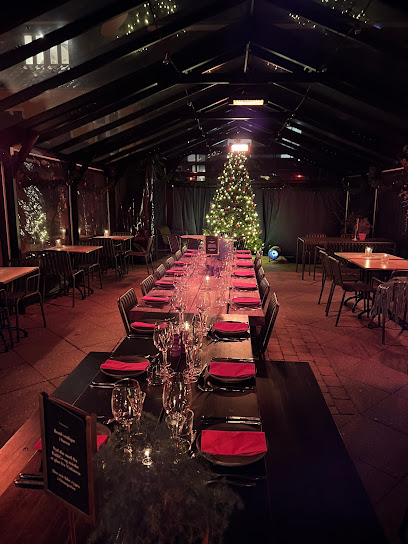
Kontoret Øl og Vinstue
Atmospheric Kolding bar in a historic townhouse, pouring beer and wine in warmly lit, wood‑paneled rooms that feel like the city’s convivial living room.
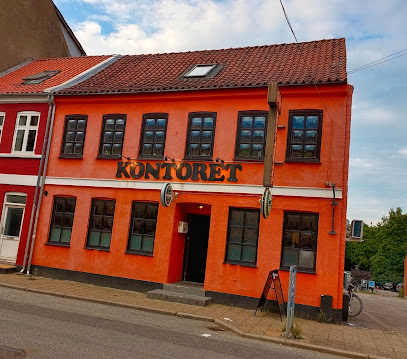
danny og mille
Casual neighborhood bar in central Kolding offering relaxed drinks and social atmosphere.
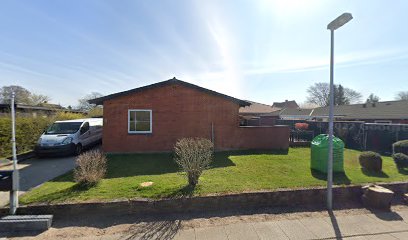
Local Phrases
-
- HelloHej
[hey] - GoodbyeFarvel
[far-vel] - YesJa
[ya] - NoNej
[nay] - Please/You're welcomeVær så god
[ver sa go] - Thank youTak
[tahk] - Excuse me/SorryUndskyld
[un-skyld] - How are you?Hvordan har du det?
[vor-dan har du deh] - Fine. And you?Fint. Og du?
[fint. oh du] - Do you speak English?Taler du engelsk?
[tah-ler du engelsk] - I don't understandJeg forstår ikke
[yay for-stor ee-keh]
- HelloHej
-
- I'd like to see the menu, pleaseJeg vil gerne se menuen, tak
[yay vil geh-ren seh meh-noo-en, tahk] - I don't eat meatJeg spiser ikke kød
[yay spee-ser ee-keh kerth] - Cheers!Skål!
[skol] - I would like to pay, pleaseJeg vil gerne betale, tak
[yay vil geh-ren beh-tah-le, tahk]
- I'd like to see the menu, pleaseJeg vil gerne se menuen, tak
-
- Help!Hjælp!
[yelp] - Go away!Gå væk!
[go vehk] - Call the Police!Ring til politiet!
[ring teel pol-ee-tee-et] - Call a doctor!Ring efter en læge!
[ring ef-ter en lay] - I'm lostJeg er faret vild
[yay er fah-ret veel] - I'm illJeg er syg
[yay er soog]
- Help!Hjælp!
-
- I'd like to buy...Jeg vil gerne købe...
[yay vil geh-ren ker-buh] - I'm just lookingJeg kigger bare
[yay kee-ger bah-reh] - How much is it?Hvor meget koster det?
[vor meh-et koh-stehr deh] - That's too expensiveDet er for dyrt
[deh er for deer-t] - Can you lower the price?Kan du sænke prisen?
[kan du sahn-keh pree-sen]
- I'd like to buy...Jeg vil gerne købe...
-
- What time is it?Hvad er klokken?
[vath er kloh-ken] - It's one o'clockKlokken er et
[kloh-ken er et] - Half past (10)Halv ti
[halv tee] - MorningMorgen
[moh-ren] - AfternoonEftermiddag
[ef-ter-mee-dah] - EveningAften
[af-ten] - YesterdayI går
[ee gor] - TodayI dag
[ee day] - TomorrowI morgen
[ee moh-ren] - 1En
[en] - 2To
[toh] - 3Tre
[treh] - 4Fire
[feer-eh] - 5Fem
[fem] - 6Seks
[seks] - 7Syv
[suv] - 8Otte
[oh-teh] - 9Ni
[nee] - 10Ti
[tee]
- What time is it?Hvad er klokken?
-
- Where's a/the...?Hvor er en/et...?
[vor er en/et] - What's the address?Hvad er adressen?
[vath er ad-res-en] - Can you show me (on the map)?Kan du vise mig (på kortet)?
[kan du vee-se meh (poh kor-teh)] - When's the next (bus)?Hvornår er næste (bus)?
[vor-nar er nes-te (bus)] - A ticket (to ....)En billet (til ....)
[en bee-let (teel)]
- Where's a/the...?Hvor er en/et...?
History of Kolding
-
Kolding's history dates back to the early medieval period, with the first known mention of the city appearing in the 1231 census under King Valdemar II. The name 'Kolding' is believed to have derived from the old Norse word 'kollr,' meaning 'rounded hill,' which is fitting given the city's varied terrain.
-
Koldinghus Castle, a prominent feature of the city, was originally constructed in 1268 by King Eric V as a defensive fortress. The castle has undergone numerous renovations and expansions over the centuries, transforming it from a medieval stronghold into a Renaissance palace. It played a significant role in the conflicts between Denmark and Sweden during the 17th century.
-
In 1849, Kolding was the site of a crucial battle during the First Schleswig War, where Danish forces clashed with Prussian and Schleswig-Holstein troops. The Battle of Kolding was a pivotal conflict that ultimately led to Denmark's temporary control over the region. The battle is commemorated in the city with various monuments and plaques.
-
The 19th century saw significant industrial growth in Kolding, particularly with the establishment of textile and machinery industries. The construction of the railway in 1866 further bolstered Kolding's economic development, turning it into an important industrial hub in Denmark.
-
During World War II, Kolding was occupied by German forces from 1940 to 1945. The city's strategic location made it an important logistical center for the German military. Despite the occupation, local resistance movements were active, and several clandestine operations were carried out to sabotage German activities.
-
In recent decades, Kolding has undergone a cultural renaissance, with significant investments in education and the arts. The establishment of the University of Southern Denmark's campus in Kolding has transformed the city into an academic and cultural center. Koldinghus Castle now serves as a museum and cultural venue, hosting exhibitions and events that attract visitors from around the world.
Kolding Essentials
-
Kolding can be easily reached by various modes of transportation. The nearest international airport is Billund Airport, located around 45 kilometers from Kolding. From the airport, you can take a direct bus or taxi to Kolding, or rent a car. Alternatively, you can travel by train from major Danish cities like Copenhagen, Aarhus, or Odense. The train station in Kolding is centrally located, making it a convenient option for travelers.
-
Kolding offers a range of transportation options for getting around the city. Public buses operated by Sydtrafik cover most parts of the city and surrounding areas. Bicycles are a popular and eco-friendly way to explore Kolding, with several rental shops available. Taxis are also readily available and can be hailed on the street or booked in advance. For those who prefer to drive, car rental services are available and the city has ample parking spaces.
-
The official currency in Denmark is the Danish Krone (DKK). Credit and debit cards are widely accepted in Kolding, including in shops, restaurants, and hotels. However, it is advisable to carry some cash for small purchases or in case you visit places that do not accept cards. ATMs are plentiful and can be found in various locations throughout the city.
-
Kolding is generally a safe city for tourists. However, it is always wise to take standard precautions such as avoiding poorly lit areas at night and keeping your belongings secure. There are no specific neighborhoods known for high crime rates targeting tourists, but always stay vigilant and aware of your surroundings.
-
In case of an emergency, dial 112 for immediate assistance. This number connects you to police, fire, and medical services. Kolding has a well-equipped hospital, Kolding Sygehus, for medical emergencies. Pharmacies are also available for minor health issues and over-the-counter medications. It is recommended to have travel insurance that covers medical emergencies.
-
Fashion: Do dress smart-casual when dining out or visiting cultural sites. Don't wear overly casual or beachwear in city restaurants. Religion: Do respect local customs and traditions. When visiting churches, dress modestly. Public Transport: Do be punctual and courteous when using public transport. Don't talk loudly or play music. Greetings: Do greet people with a firm handshake and maintain eye contact. Eating & Drinking: Do try local cuisine and be polite if you are invited to a Danish home. Don't leave food on your plate as it is considered wasteful.
-
To experience Kolding like a local, visit the weekly market at Akseltorv Square where you can buy fresh produce and local goods. Take a stroll in the Geographical Garden for a peaceful retreat. Engage with locals in cafes and pubs; they are often friendly and willing to share insights about the city. Don't miss visiting Koldinghus, the city's iconic castle, which offers a deep dive into Denmark's history.
Nearby Cities to Kolding
-
Things To Do in Vejle
-
Things To Do in Horsens
-
Things To Do in Ribe
-
Things To Do in Odense
-
Things To Do in Esbjerg
-
Things To Do in Sønderborg
-
Things To Do in Silkeborg
-
Things To Do in Herning
-
Things To Do in Nyborg
-
Things To Do in Aarhus
-
Things To Do in Kalundborg
-
Things To Do in Viborg
-
Things To Do in Randers
-
Things To Do in Slagelse
-
Things To Do in Næstved








